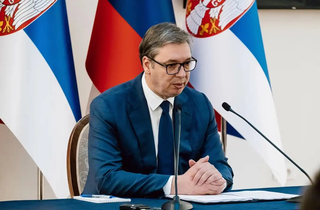Speaking in an interview with Handelsblatt, a German newspaper, Vučić emphasized the strategic importance of the partnership.
"This partnership is of great strategic importance for both countries. Germany will be the only country to which we will directly supply lithium," Vučić stated. "In this way, Serbia positions itself as a support for the German automotive industry, which needs this material for the production of batteries for electric vehicles. Until now, Europe was dependent on imports from China, Australia, and South America. We want to put an end to this."
The announcement follows the signing of a memorandum of understanding between Serbia and the European Union on July 19, establishing a strategic partnership in raw materials. The agreement, signed in Belgrade with German Chancellor Olaf Scholz in attendance, underscores Serbia's growing role in the European lithium market.
According to Vučić, Serbia has the capacity to produce 58,000 tons of lithium annually, enough to manufacture approximately 1.1 million electric vehicles. Serbian supplies could account for around 17% of the European lithium market, offering significant support to Europe's transition to sustainable mobility.
The announcement also marks a potential shift in Serbia's approach to lithium development. In 2022, the Serbian government halted a joint project with Australian-British company Rio Tinto to mine the lithium-rich mineral jadarite near Loznica, following protests by environmental activists. However, in July 2024, Serbia's Constitutional Court overturned the government’s decision, paving the way for the project’s potential revival.
Lithium is a critical component for battery production, and Europe's reliance on imports has been a long-standing challenge. Serbia’s move to partner exclusively with Germany could significantly bolster the European automotive industry’s supply chain resilience.
This development underscores Serbia's strategic importance in Europe's pursuit of sustainability and energy independence, as the continent accelerates its shift to electric mobility. (ILKHA)



 Dünya
Dünya
 Dünya
Dünya
 Güncel
Güncel
 Güncel
Güncel
 Güncel
Güncel
 Dünya
Dünya
 Güncel
Güncel
 Güncel
Güncel
 Güncel
Güncel
 Dünya
Dünya





